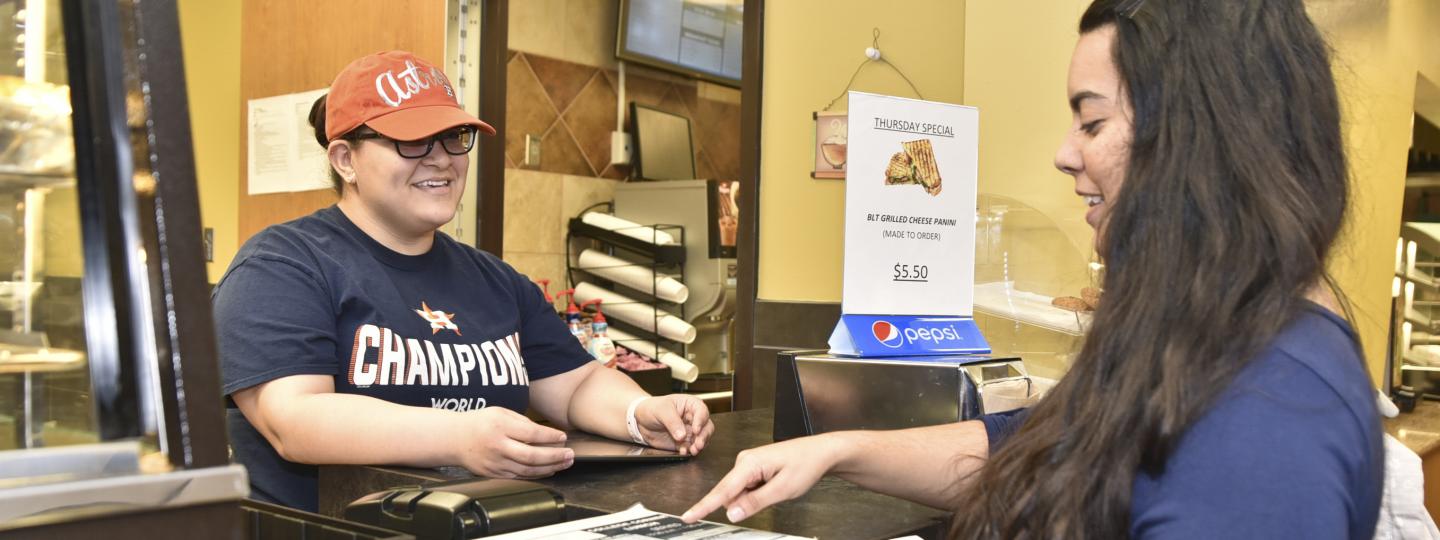College Food Pantries Provide Hot Meals Through Voucher Program

With the costs of attending college rising each year, many students roaming the campus halls don't know if they'll be able to eat each day.
Food insecurity affects 42% of community college students nationwide, according to a recent study by the Hope Center for College, Community, and Justice. Since 2014, San Jacinto College has provided its students with campus food pantries to eliminate this barrier to student success. What began with 15 student requests has now served more than 2,000 students to date.
But what if you're a student with no access to a stove or microwave? What if you don't own a can opener? These situations still plague students, and this fall, the College took its food pantry program a step further by providing food vouchers with each food pantry disbursement that occurs every two weeks.
Made possible by PepsiCo and Barnes & Noble, students who receive a disbursement also receive two food vouchers per week for use at any of the campus cafes. This allows participating students to have at least two hot meals each week on campus.
"Although students have been experiencing food insecurity for years, it's always been one of the silent, hidden barriers to student success," said Hilda Boyce, San Jac director of auxiliary services. "Looking at the high schools where many of our students come from, nearly 80% were on free or reduced lunch, so making that transition from high school to college poses a challenge when it comes to eating a hot meal each day."
But the College didn't stop there. In a world where almost all transactions are done electronically, knowing that there could also be additional sensitivities to students presenting physical paper vouchers to the cafe cashiers, the "vouchers" are actually access code numbers with the $8 voucher amount assigned to the student's access code. Therefore, when a student pays at the cashier and gives them their access code, no one knows whether they're an athlete or another student providing their access code for their meal funds. No stigma, no problem.
"San Jacinto College wants to remove barriers for our students so that they can be successful, and one of the largest is food insecurity," said Dr. Kelly Mizell, director of Pathways/special projects. "In the College's recent Student Financial Wellness Survey (Trellis Company, 2018), more than 60% of our student population reported that they have low or very low food security. It is very difficult for anyone to do their best when they are hungry. We will continue to work with our partners in the community to help our students stay on the path to achieving their dreams."
